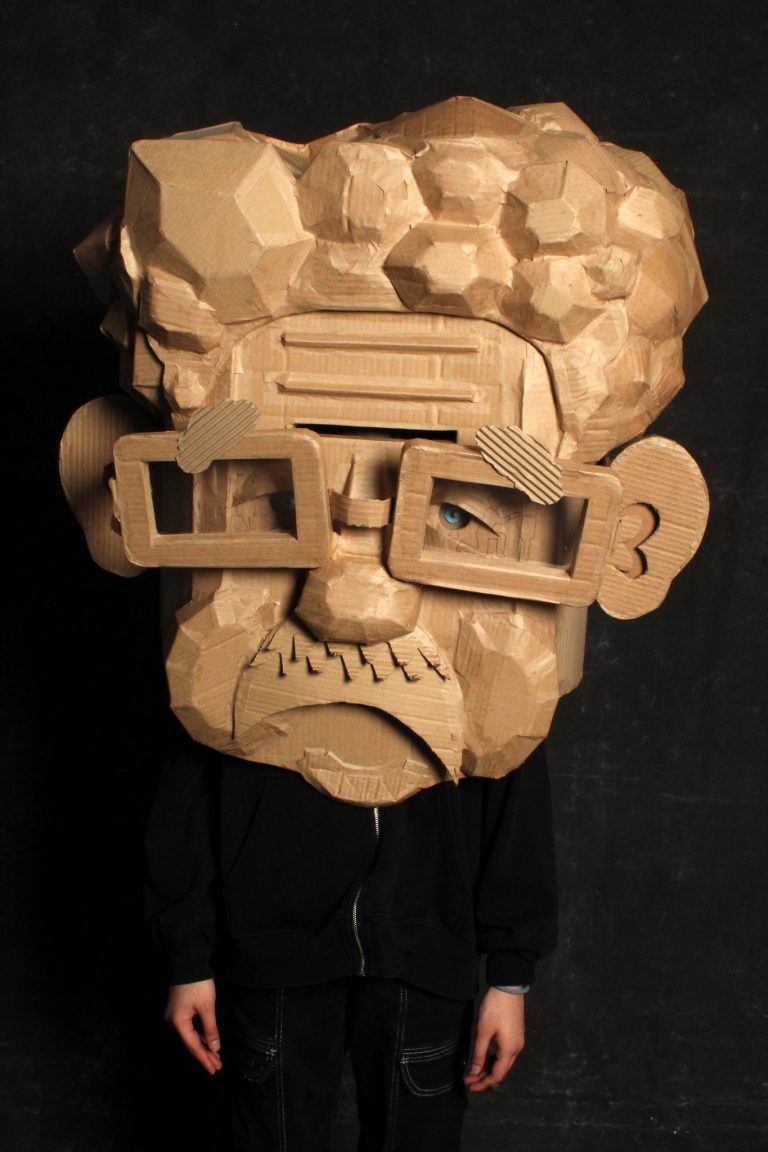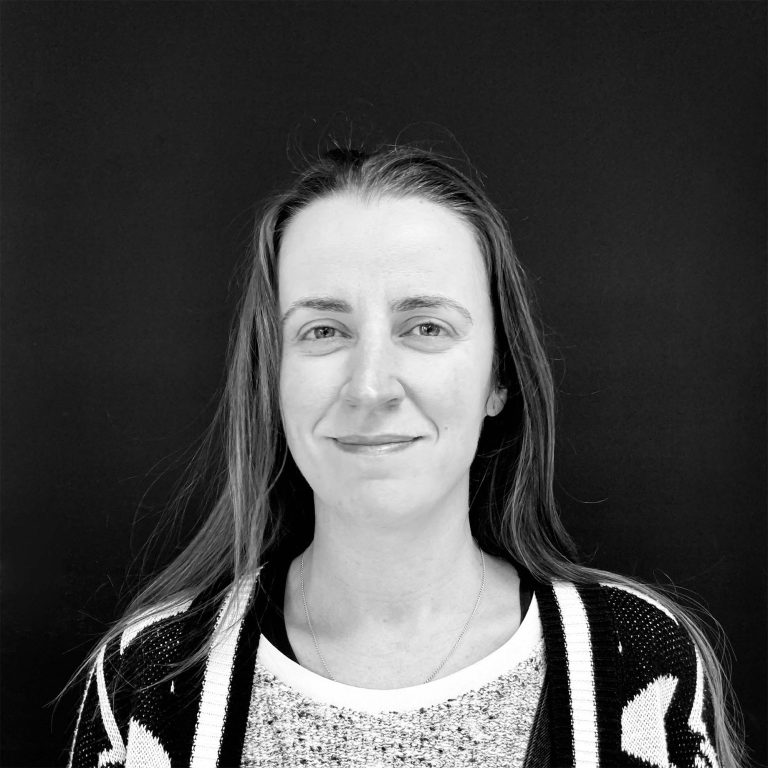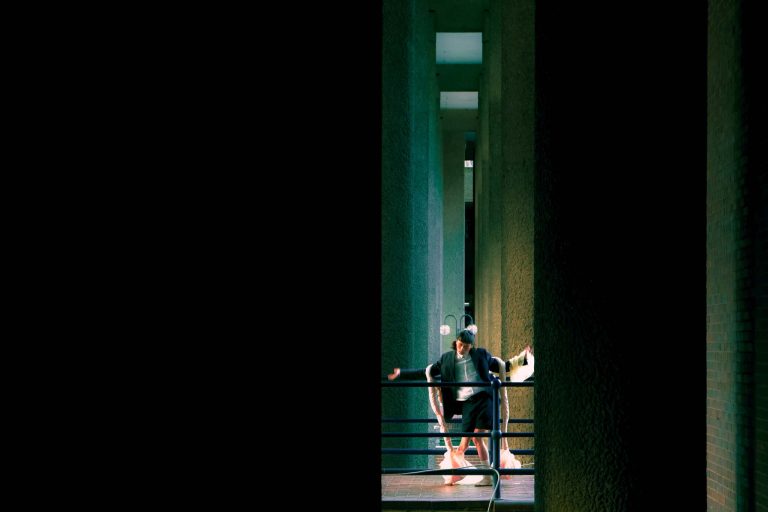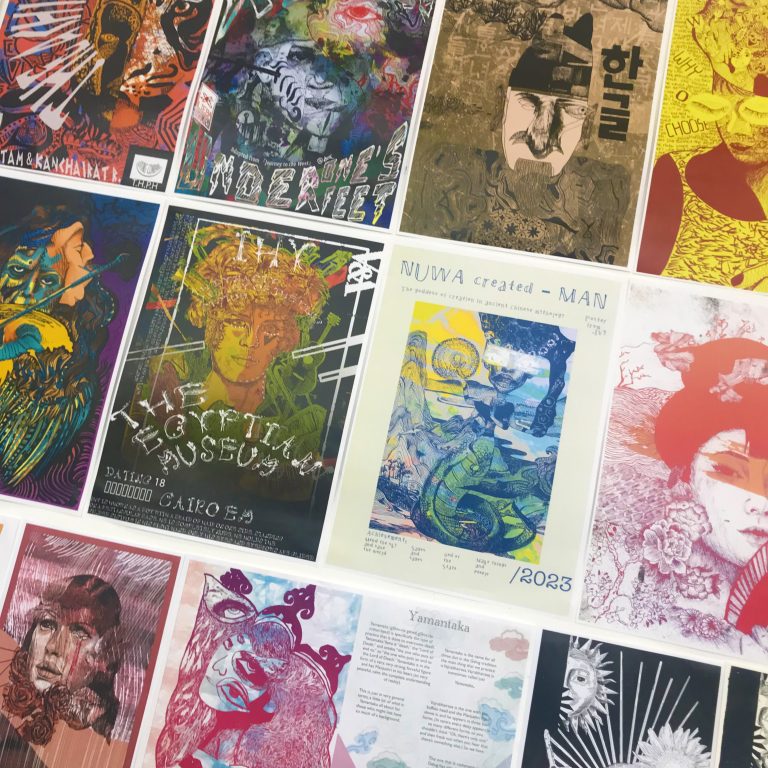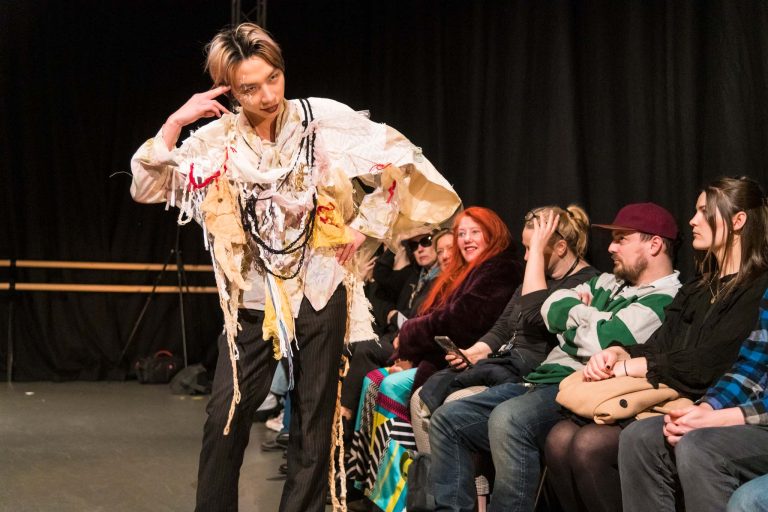Foundation Diploma in Art & Design – Graphics & Illustration
A 1-year programme, accredited by the University of the Arts London Awarding Body, designed to prepare you for progressing onto any art and design related degree.
Graphic Design and Illustration underpin most of the visual creative arts industry. You are introduced to the fundamentals of graphic design, such as layouts, composition, typography, colour work, the relationships between photography and illustration and how all of the above unites to form what makes a graphic designer. All media from pen and paper to digital creative software is encouraged. Both are tools, it’s just how you use them that determines you. A sharp eye for detail and an understanding of type, image and layout are key assets to succeed in this sector of the creative arts. Professional Graphic Designers adapt from one brief to the next to designing for print, web, mobile and TV.
Preparation for
- Graphic Communication Design
- Publishing and Editorial Design
- Illustration Animation
- Graphic and Media Design
- Communication Design
- 3D Game Design
- Media Communications
- Web Design
- Illustration
- Children’s Book Illustration
- Visual Communication
WE PROVIDE
To help our young artists we provide a portfolio case and art box of essential requisites. Specialism materials are also available in our workshops and studios. We also provide access to all the adobe software (Photoshop, InDesign, Premier Pro, After Effects, and more), free colour printing, access to an in-studio library, a photography studio, and materials needed for printmaking. Our students also have access to our 3D studio which has a laser cutter, 3D printer, vacuum former, and the support of a full-time technician.
UCAS TARIFF
Level 3
The UAL Level 3 Foundation Diploma in Art & Design – Graphic Design & Illustration is included in the UCAS tariff and attracts tariff points for each final grade as shown below:
Pass 80 – Merit 96 – Distinction 112
THE AWARD
The UAL Level 3 Foundation Diploma in 3D Design is quality assured by UAL Awarding Body through a rigorous external moderation process and grades are monitored against agreed national standards. It is also regulated by Ofqual.
“In this course, I have gained more
confidence and passion in Graphic Design. I was encouraged by my tutor to experiment with new techniques and medias”
Yixin –
Foundation Diploma in Art & Design student
VIDEO
Lorem ipsum dolor sit amet, consectetur adipiscing elit. Ut elit tellus, luctus nec ullamcorper mattis, pulvinar dapibus leo.
HIGHLIGHTS
- Events
- Student Success
- /Undergraduate
OVERVIEW
Course Location
Cambridge
Course Length
1 year (3 terms)
Course Start
January
Tutor Support
Specialist staff in your chosen subject are timetabled 3 days a week, with staff across the department available Mondays to Fridays.
Studio Access
Students have access to our studios 7 days a week, from 8:00 am to 8:00 pm Monday to Friday, and from 10:00 am to 4:00 pm during the weekend.
Awarding Body
University of the Arts London Awarding Body
How your Work is Assessed
Visual and written assignments and projects following the specification set by UAL, the awarding body.
Excursions
Local and national educational trips to museums and galleries within a dedicated research week and across the year.
English Language
Up to 5 hours per week if required
Progression
Higher Education in Art & Design. Guaranteed progression to any of our BA courses on successful completion of the Foundation Diploma.
ENTRY
Age
17+ years
Educational Level
Completion of High School is needed or a minimum of 1 x Level 3 qualification, preferably in a relevant creative subject (i.e. A level) and 3 x GCSEs at grade 4 or grade C, including Maths and English and at least one of which should be in a creative arts subject.
Students who do not meet these entry requirements will still be considered on their own individual potential to succeed.
English Level for International Students
IELTS 4.5+ (no element under 4.0)
Portfolio
Small portfolio required of 10 images or slides. We are looking for an ability to develop creative ideas in addition to presenting personal interests and technical ability.
Portfolio of work showing personal work, school work, finished and prepared which demonstrates a commitment to 3D Design.
STRUCTURE
Contextual and Thematic Studies usually begins the week. This may take the form of a lecture/slideshow, or discussion usually followed by related practical or written work and activities. Here you are introduced to a diverse range of artists, designers, brands, concepts and ideas linked to different times, cultures and genres. These sessions are intended to broaden your knowledge, skills and understanding of the wider contexts within Art and Design and provide you with research opportunities and reference materials to support the development of your own practical skills and creative ideas.
Art and Design workshops will be delivered in a variety of materials and processes. The practical and technical skills learned are intended to be as transferable as possible and help you develop an exciting and creative portfolio. There is emphasis on risk taking, playing, failing and learning from mistakes and unexpected discoveries. At CSVPA we believe strongly in developing a wide range of skills to support the versatility required of creatives working in professional and commercial creative fields today. Specialist workshops will be delivered at appropriate times within specific projects. At other times practical sessions run where all students are working on their own individual project development.
These sessions are usually later in the week and provide an opportunity, with guidance, to consolidate, document and reflect upon learning taken place across the week. Guidance will be given to help develop the skills, knowledge and understanding related to managing the creative process; self-evaluation, written language and vocabulary, presentation, and organisation skills in the effective documentation of the learning journal. These sessions also include 1:1 tutorials, individual presentations, peer reviews and group critiques.
All students undertake 2 hours per week of Experimental Studies. This course encourages risk taking, playing, and exploration of a wide range of media and processes, and supports learning in both Year 1 and your chosen specialism in year 2. Work produced is submitted as part of Unit assessment supporting or enhancing attainment.
There is a personal tutor session timetabled each week. The emphasis in the first term is on progression opportunities and University applications; providing opportunity for research and 1:1 support. Towards Unit 13: the Project Proposal and realisation, time is spent embedding study skills and how to be successful in the final project.
This class is delivered weekly in the first term and teaches you how to technically create a portfolio using Adobe Creative Suite. It develops critical awareness of portfolio content and presentation skills and explores different portfolio types appropriate to different courses and institutions. You will build confidence to develop your own personal style and approach, effectively communicating your own creative voice. Your portfolio for submission will be overseen by your specialism tutor. Students do not require additional portfolio skills classes outside of CSVPA. Our tutors are all experts in their fields and will advise you on how to best prepare and curate your portfolio to meet the different requirements of different universities.
For international students who have an IELTS with any element 5.5 or lower, English classes are timetabled to aid progression to university. Through a variety of teaching styles, we focus on four key skills you need to pass your IELTS exam; listening, reading, writing and spoken English. This subject is linked with Art and Design, so you are better equipped with the vocabulary to analyse and reflect upon your own and others’ work.
Units 1, and 2 or 3 can only attain a Pass or Fail. All units need to be passed to gain the Foundation Diploma at the end of the year.
Every week, your learning journal will be checked by your tutor and feedback given to guide learning, improvements and identify gaps to support progress. Throughout workshops and practical sessions, tutors will circulate and provide verbal feedback on work in progress. Questioning individuals and groups is an important part of assessing students understanding and helps tutors to modify activities to better suit the needs of individuals and the whole group.
Students should use checklists issued for each project to help organisation and manage coursework for submission, ensuring that all assessment criteria are covered. Weekly written reflections will help to identify understanding and personal areas of strength and weakness and will be key to the dialogue between student and tutor. Peer reviews and group discussions will also aid self-review and provide the group with peer support and exemplars to better understand the standards. Prior to formal assessments, you will need to complete your own self-assessment against the assessment criteria.
There will be a formative assessment usually halfway through each Unit. Work to date will be submitted electronically through Canvas, our online learning platform. Here the progress you have made so far will be formally assessed against the assessment objectives. Work will be given a referral if it does not yet meet the standards for pass. All assessment criteria must receive at least a pass to attain a pass overall. Similarly, to attain a Merit or Distinction in Unit 4, all assessment criteria much reach that level. You will receive comments to identify specific areas of strength and weakness relating to the assessment criteria. Following formative assessments, improvements can be made to projects prior to the summative assessment. The summative assessment at the end of a unit follows the same format as the formative assessment. Any student who receives a referral in the summative assessment will be given a week to complete the necessary work required to achieve a pass level. An individual action plan will be provided with listed evidence to submit/resubmit. In year 1, students are not able to progress to Unit 4 in term 2 unless a pass has been attained for Units 1 and 2 or 3.
Unit 1 Diagnostic Investigation into Creative Practice
In this unit, students will undertake a diagnostic investigation into visual language and creative practices. This exploratory investigation allows students to become familiar with and experiment within a range of creative disciplines related to their chosen subject as part of their journey to, or reinforcement of, further specialism in Unit 2 or 3.
Projects
Project 1: Illustration and printing experiments – ‘Hello There!’
Allows students to ‘loosen up’ and find outcomes through practical methods such as print, collage, painting, photography, and illustration to name some. Lino print workshop introduced. Students respond to one word, ‘language’, and develop/ create outcomes based on their interpretation.
Project 2: Experimental typography – ‘Word Up!’
Introduces students to using research to benefit and support outcomes with both artist influence and experimental typography. Artist and word chosen at random. Students respond to the artist/ designer using their style and techniques. Materials, experiments and outcomes assessed on interpretations, creativity and ideas, with developed research. Practical collage workshop introduced and technical workshops with on screen lecture and videos presented.
Project 3: Scale in design – ‘1st Class’
Identity project, portrayed with the design and creation of a set of stamps. Students use research and idea development to design a collection of stamps towards the set topic – start large, reduce and analyse when small. Allows students to develop ideas with visual impact and appreciate the use of typography and image used. Experimentation is key and the outcomes are presented in a large crit to other students – encouraging and accepting critical analysis of work.
*Projects are examples and may change from year to year depending on the nature of live projects working with external partners, current exhibitions and visits planned and emerging new trends
Skills Learned
Page/Layout Design, Photography and image manipulation, scaling and reduction, Typographic understanding, Colour Theory, Drawing and Mark Making, Adobe Creative suite: Photoshop masks, layers, clone tools, cutting and selecting images, file size reduction and saving methods. InDesign page setups, grids, columns, margins, text and image manipulations and placements, spread design and PDF saving/ exporting methods. Illustrator vector work, anchor manipulation, typographic styling and manipulation,
Unit 2 Developing Specialist Practice (Foundation Diploma Level 3)
Unit 3 Developing Specialist Practice (Foundation Diploma Level 4)
This unit will provide the student with the opportunity to reflect on the knowledge, skills and practices they have developed in Unit 1 of the qualification, and to define their creative ambitions by encouraging a holistic approach to a range of activities, which will support, contextualise and position their creative endeavour within their chosen specialist practice.
Projects
Project 1: Advertising Campaign – ‘It’s a Sell Out!’
Mundane items presented – students then asked to ‘sell’ them for their AMAZING qualities. What else do they offer? How can they be seen as ‘cool or essential to life?’. Logo creation, typographic experiments, poster designs, magazine spread, and then 2 additional advertising items required to support – such as Billboards, Social media gif’s, vehicle livery, packaging and or a storyboard for a 20 second TV spot. Column method, grids, typographic ordering and design with self-created illustration or type design is encouraged. Technical workshops with on screen lecture and videos presented. Good/ bad advertising methods introduced as well as rule of ethics and ASA introduction.
Project 2: Film Poster redesign – ‘Roll Cameras!’
Students select 1 film the 1980’s (from a choice of 15), that was iconic and held prominence then and still does now in popular culture. Research is essential and the exploration of the time, culture and its references must be used to assist with ideas. Students again encouraged to use experimental type but also use strong visual imagery for both a teaser trailer and main sheet poster. Project encourages research, experimentation with imagery, digital techniques, form, style, layout, ordering, focal point use and colour theories. Technical workshops with on screen lecture and videos presented.
Project 3: Penguin Live Brief information (when running) ‘Read Me…’
Bookjacket/cover redesign of 3 books. Students select 1 to recreate and use illustration, photography, image creation, manipulation of materials, collage work etc. Allows students to use these practical methods and use structed, specific guides and rules to build the design. Column method, grids, typographic ordering with self-created illustration or type design is encouraged. Technical workshops with on screen lecture and videos presented.
Project 4: University research and application
This Unit is delivered through both weekly personal tutor sessions and 1:1 tutorials in the Autumn term and a UCAS week in September where students visit the UCAS fair in London and are able to research different institutions and courses, speaking to University staff. Students are expected to gather a body of research evidence, develop a personal statement and submit a portfolio of work from across the course applying the skills learned in portfolio skills classes.
*Projects are examples and may change from year to year depending on the nature of live projects working with external partners, current exhibitions and visits planned and emerging new trends
Skills Learned
Page/Layout Design, Photography and image manipulation, scaling and reduction, Typographic understanding, Colour Theory, Drawing and Mark Making, Template management, practical and digital cross-over manipulations. Adobe Creative suite: Photoshop masks, layers, clone tools, cutting and selecting images, file size reduction and saving methods. InDesign page setups, grids, columns, margins, text and image manipulations and placements, spread design and PDF saving/ exporting methods.
Unit 4 Consolidating Practice
This unit aims to provide students with an opportunity to take control of their own learning and demonstrate their achievement by independently initiating, researching, completing and evaluating a project proposal and its realisation within their chosen professional context.
Skills Learned
By this stage in the course, it is expected that students will have acquired the necessary skills knowledge and understanding to undertake their devised project, however investigation into new skills is encouraged and facilitated where possible. Students may take advantage of the 3D workshop or join one of the varied specialist workshops offered across the department.
FACULTY
RELATED COURSES
TALK TO US
Do you want to find out more about CSVPA? Talk to our student advisors now.


